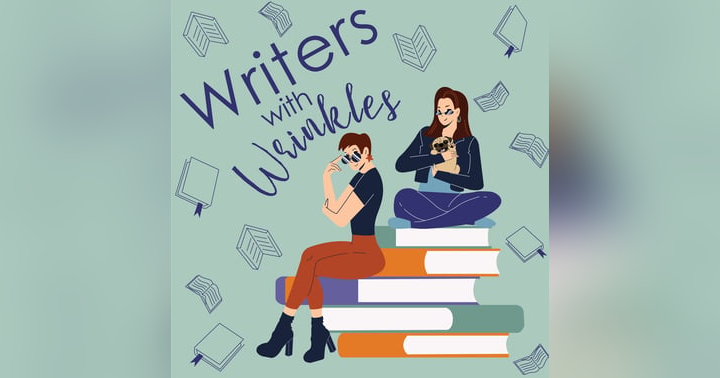The Write Mindset: Kick Imposter Syndrome to the Curb!

Coping with Imposter Syndrome as a Writer: Finding Confidence on the Page
As authors, the path to publishing can often feel like walking a tightrope between pride in our work and a daunting abyss of self-doubt. It's a balancing act familiar to any writer, and it has a name: imposter syndrome. On the latest episode of Writers with Wrinkles, we unspooled the threads of this pervasive feeling that haunts even the most successful writers.
Imposter Syndrome: The Writer’s Unseen Adversary
Imposter syndrome isn't selective; it doesn't care about the number of books you’ve sold or the accolades adorning your mantlepiece. Defined as the persistent belief in one’s lack of ability or the fear of being exposed as a fraud, it can paralyze writers, leaving us to question every word we pen. It's a shadow that dims the light of accomplishment, convincing us that luck, not skill, was the real author of our stories.
You're Not Alone: The Shared Experience of Self-Doubt
The comfort—if one can call it that—lies in the commonality of this experience. Through candid conversations with Beth McMullen and Lisa Schmid, we find that imposter syndrome is as prevalent in writing circles as the proverbial rejection letter. Even literary titans grapple with these insidious thoughts, proving that the doubts whispering in our ears are not unique voices but a chorus echoing through the halls of the literary world.
Social Media: A Double-Edged Sword
In today’s digital age, social media can exacerbate these feelings. Our feeds are inundated with curated triumphs: another author's award, yet another bestseller list topped. This digital highlight reel can amplify our fears of inadequacy, making our own successes feel paltry by comparison. The key, as discussed in our episode, is to navigate social media with intentionality, engaging with content that uplifts and inspires, rather than diminishes, our sense of accomplishment.
The Power of Community and Constructive Criticism
One of the most poignant takeaways from our discussion is the crucial role a supportive community and constructive critique partners play. A nurturing environment can act as a counterbalance to the weight of self-doubt. Honest, helpful feedback can ground us in reality, giving us a clear perspective on our work, untainted by the harsh lens of imposter syndrome.
Strategies to Overwrite Imposter Thoughts
There are strategies to push back against these crippling self-assessments. Setting achievable goals creates a roadmap to success, one small victory at a time. Therapy or book coaching can also offer guidance, helping to silence the inner critic that insists we're not good enough. And at the heart of it all is the act of writing itself—immersing oneself in the craft for the sheer love of storytelling, which can be the most potent antidote to imposter syndrome.
Final Thoughts: Write Through the Doubt
While imposter syndrome may be a frequent visitor in the lives of writers, it's a guest that can be managed. By fostering a supportive network, engaging with social media judiciously, and reaffirming the joy found in writing, we can lessen its grip on our creative spirits.
So, to our fellow writers wrestling with the specter of doubt, know that you are in good company. Embrace community, celebrate every achievement, and continue to tell the stories only you can tell. Imposter syndrome doesn't hold the pen—you do.
Join us for our next episode as we continue to explore the hills and valleys of the writer's journey, always seeking to smooth out the wrinkles along the way.
[Listen to the full episode for more insights and strategies on overcoming imposter syndrome as a writer.]
Have thoughts or strategies of your own? Share them with us! We'd love to hear how you navigate these challenges. Drop us a line or leave a comment below.







